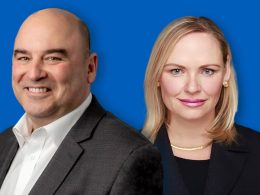Here is the complete transcript of this interview:
CONSUELO MACK: This week on WealthTrack, how Great Investor Dennis Stattman is navigating the great divide between the slow growing developed world and the fast growing developing one; paper based assets and hard real assets; bonds and stocks. BlackRock Global Allocation Fund’s Dennis Stattman on managing a bifurcated investment world is next on Consuelo Mack WealthTrack.
Hello and welcome to this edition of WealthTrack. I’m Consuelo Mack. We have said many times in the past that in this global and interconnected world we live in, money will flow to where the growth is and will leave where growth is lagging. The developed world- Europe, the U.S., and Japan- are all in the lagging column right now. According to independent research firm ISI Group, over the past 8 years China’s nominal GDP, that’s with inflation included, has accelerated 250%. In contrast, U.S. GDP has expanded only 40%, the Eurozone’s a mere 25% and Japan’s nominal GDP has actually contracted 5%.
Recent figures show China’s economy is still booming as are many other developing nation’s, whereas the mature economies of the West and Japan- with their heavy levels of government debt, unemployment, aging populations and slow recovery from a series of real estate, banking and credit bubbles- are laboring. According to many economists, the debt reduction, or deleveraging process as it is known in the trade, will be particularly painful and lengthy, taking several more years. As a recent article in The Economist put it, “get used to it!” What’s an investor to do?
That’s where this week’s Great Investor guest comes in. We last talked to Dennis Stattman, lead portfolio manager of BlackRock’s Global Allocation Fund at the beginning of this year. Given the rapid escalation of world events, we decided we better get an update. Stattman, who once worked at the World Bank, had the prescience to join the now $55 billion plus fund at its inception, way back in 1989. Since then, the fund has had only three down years and has outperformed most stock and bond markets, as well as the majority of its peers, with less than stock market volatility, achieving a primary goal. It’s done it with a broadly diversified portfolio of 700 plus individual stocks, bonds, alternative investments and cash invested around the world. I began my visit with Stattman by asking him why he thinks there is something artificial about the current market environment.
DENNIS STATTMAN: Treasury bond prices have been heavily influenced by the purchases that the Federal Reserve has been making, and they’ve been quite explicit about this. They want Treasury bond prices higher and yields lower than they otherwise would be. And in the end, all fixed income prices and yields are influenced by the Treasury market; and so when the Treasury market is artificially high in terms of price and low in terms of yield, that tends to influence all fixed income security prices. And in fact, since fixed income securities compete with other assets, that tends to influence all asset prices. And we believe that asset prices have been held higher than they otherwise would have been because of the Fed’s purchases.
CONSUELO MACK: So therefore the rally that we’ve seen in what we now call ‘risk assets’ that Ben Bernanke has said was one of the reasons that he did the QE1 and QE2, so in fact, you’re saying the risk assets are artificially inflated.
DENNIS STATTMAN: They could well be. Now, to different degrees, and we happen to think that the Treasury bond market is the most inflated, and the stock market has a more questionable amount of inflation in its prices.
CONSUELO MACK: So what happens now that the Fed at least will not be actively buying Treasury securities, at least the new issues, that they’re going to be turning over their portfolio, right? And replacing, as the Treasuries that they hold on their balance sheet mature, they’re going to continue to buy, to replace those with Treasuries, is that correct? So we’ve still got some stimulus going on, even though the QE2 officially ended?
DENNIS STATTMAN: They’re maintaining, we believe, the size of their portfolio, but they’ve told us they’re not going to be increasing the size of it. So our sense is that having been through a program where they were buying approximately one-tenth of a trillion dollars worth of per month, that when you take away the growth in demand that they’ve been providing, that the Treasury market’s going to have to find another buyer. And if it’s not a foreign buyer, then it’s going to need to be a domestic buyer. And we have not, for some time now in this country, been self-financing. And it might take higher interest rates to do that.
CONSUELO MACK: And when do we start to see that pressure building?
DENNIS STATTMAN: Well, I certainly hope rates are going to go higher, not just in order to reward savers. But if rates don’t go higher, that would probably be associated with a very weak economy, and perhaps even financial trouble again, some place in the world; for example, in Europe. So our hope is that higher rates would be accompanied by at least a decent economy. And I think if we have a decent economy, we will have higher interest rates.
CONSUELO MACK: Okay, so let’s talk about a decent economy. Are we going to have a decent economy, and if so, when?
DENNIS STATTMAN: We’d love to see something far more dynamic than we’re seeing. But so far, we haven’t seen employment strengthen enough to, for example, reduce the average length of unemployment, which is distressingly high. So what we think we will continue to see is a world in which the developing economies outgrow the developed economies, and where the developed economies struggle to get back to trend growth.
CONSUELO MACK: But the theme is that you felt that we’ve got a bifurcated world, essentially; that they’re not the haves and the have-nots, but the rise of the rest. Where are you seeing the rise of the rest, that’s most noticeable, and what are the areas that you think that we should be paying particular attention to, as investors?
DENNIS STATTMAN: Well, clearly China, India, Brazil. And those are very well-known stories, but they’re powerful stories. And these are not stories that are going to change every three or six months. These are decade or multi-decade-long stories. It’s simply a case that production, jobs, income and wealth are spreading much more broadly around the world. And in fact, what’s generating those jobs and income and wealth growth is increasingly domestic consumption in some of those countries, especially China.
CONSUELO MACK: How risky is the China story, and the fact that so many of us seem to be banking on China as kind of the driver of world growth in the 21st century? And what are the risks to that scenario?
DENNIS STATTMAN: Surely when loan growth is as robust as it has been, in China, and where lending policies are influenced by many different levels of government, you’re going to have some very questionable sorts of loans created. But at the same time, the growth of the banks’ assets, to some degree, means that the portion of them that are troubled from a year or two years ago, is not as overwhelming as it otherwise would be. We should also keep in mind that China is a country of financial surpluses, and surpluses on the one hand are associated sometimes with growth that is so fast that there are problems created. But at the same time, surpluses are surpluses, and they can absorb losses.
CONSUELO MACK: What are the surpluses that you’re talking about that you think can provide a cushion to China, even in the case of some sort of a downturn, or at least a slowdown?
DENNIS STATTMAN: Well, let’s keep in mind that China generates a high level of savings, a high level of trade surplus. It has the world’s highest foreign exchange reserves, by far. And it’s in a position to use some of those reserves, and that power to generate financial assets to repair, when there’s some problems. And also if a growth rate of 10 or 11% turns into a growth rate of 7 or 8%, it’s still a growth rate.
CONSUELO MACK: Let’s talk about another controversial statement that you made, and that is that government bonds are not safe. Whose government bonds are not safe, and why are they not safe?
DENNIS STATTMAN: Well, we believe that most government bonds are safe in terms of the nominal value of them- in other words, that most of them will pay their interest and pay their coupons on time. Might not be every single one of them, and we can think of some countries in Europe that are very questionable at this point.
CONSUELO MACK: So Greece and Spain and Portugal and Ireland are?
DENNIS STATTMAN: I would say at least Greece and Portugal are in serious question, and of course, they’re small enough to be manageable. The big question is probably Spain. And if Spain were to get into trouble, people would look around for the next country to worry about. And let’s hope that the trouble stops before it gets to Spain not being able to meet its obligations.
But I think more to the point is simply something like U.S. Treasury bonds. A 10-year Treasury yields a little over three percent these days. And what that really means is that’s like a stock that sells at a PE ratio in the thirties, but has no growth. And this is before inflation and before taxes. And we are right now, as a nation, facing a big deficit that has a large cyclical component. And that cyclical component is also occurring at the same time there is a tidal wave of demographic-related spending that is just starting to happen and will grow and grow and grow.
CONSUELO MACK: The Baby Boomers, social security, Medicare.
DENNIS STATTMAN: Exactly. That will grow for the rest of our lifetimes, and we don’t, as a nation, yet have much of a plan about how to pay for it. And given that we’re starting with very low interest rates, a low but rising rate of inflation, very low real interest rates. The real interest rates on a Treasury inflation-protected security with a maturity of ten years are less than one percent. It seems that there are risks of inflation and risks of higher interest rates that one is not really compensated for today.
CONSUELO MACK: Now, the Chinese, for instance, hold a lot of Treasury securities.
DENNIS STATTMAN: Yes.
CONSUELO MACK: U.S. Treasury securities. And even though they’re diversifying, supposedly, into some sovereign debt of European countries and whatever, but good luck to them in that area, so you know, I mean, what’s the alternative? If, as far as kind of the traditional use of Treasuries in portfolios has been for liquidity reasons and also a defensive, kind of a non-correlated asset, what do you substitute for the traditional role that Treasuries have played in most of our portfolios?













